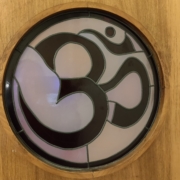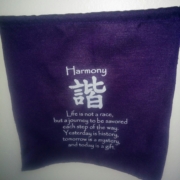5 Intention-setting Ideas to Support Your Overall Wellness
National Wellness Month!
August has most of us experiencing “the heat” of summer, which makes us humans a little edgier and more prone to irritability, even more so during a pandemic that just won’t go away! Heat, of all kinds, makes us uncomfortable. Physical heat has been shown to elevate levels of cortisol in our bodies. So what might we “do” to make ourselves more comfortable this summer – and perhaps for a lifetime?
National Wellness Month encourages us to focus on our self-care. When we do so, we are actively participating in reducing our stress and keeping us aligned with our authentic self, the one that reflects your inner strength through vulnerability and open-heartedness. Unfortunately, many of us have been told that self-care is selfish, so we put ourselves last on our list of responsibilities. When we don’t prioritize our self-care, we disconnect from our authentic self and expose ourselves to toxic stress, making us uncomfortable in our own skins.
To honor August as National Wellness Month, below are intention-setting ideas for you to consider that might support your level of comfort in your own skin, even in the heat, by reinforcing the connection to your authentic self:
- Find Your Passion. Many of us might ask, how do I recognize my authentic self? Well, a simple place to start is to identify what energizes you. We engage in a lot of activities, by ourselves and with others, but don’t check-in with ourselves afterwards. So perhaps taking some time to simply sit with yourself and check-in with your energy level after “doing” something. Each time you do so, you will begin to identify activities and people that either leave you feeling “up” or “down”. Consider starting two lists – one to track the uplifting and one for the draining. Once you have identified several uplifting, energizing activities, perhaps see if you might find a common thread between them.
- Find Your Tribe. I read once that the only difference between ‘illness’ and ‘wellness’ is moving from ‘I’ to ‘We’. To stay connected to your authentic self it is important to build your social support system. Once we better understood that humans are wired for connection, the culture of independence has been questioned. We are an interdependent species, so consider taking inventory of your social circle and put a plan in place to surround yourself with supportive people who energize you by encouraging your authentic self to shine. Perhaps find a group to join that represents your core values or set healthy boundaries around how much time and attention you give people who are naysayers.
- Find Your Peace. Our culture of striving – to do more, for perfection, to be accepted – keeps us in a place of unease and disconnected from our authentic self. Accepting our limitations as the flawed human beings we are is a starting point for attaining more inner peace. Consider giving yourself more patience and compassion, acting like you are your best friend, talking to yourself like you are talking to your best friend. Try it for day and check in. Then perhaps try it for week and check in again. Take note of what holds you back from being your own best friend.
- Find Your Flow. What are some simple daily self-care activities you can add to your schedule? Perhaps it is drinking more water or making sure to eat breakfast. Maybe it is to do a 10 minute yoga or meditation practice in the morning. Consider keeping it real simple and adding just one practice to your day to start. Check in. If you are feeling more in the flow and more connected to your authentic self in those moments, consider adding another one the following week. Take it slow and don’t forget to give yourself patience and compassion during the exploration.
- Find Your Purpose. When we are able to challenge the belief that self-care is selfish, we can begin to hear our supportive inner voice guiding us forward. Often times it is our inner critic that is so loud we can’t hear our authentic self speaking in our ear. Creating those self-care opportunities allows for our supportive inner voice to be heard. We need opportunities to hear that voice to identify what motivates us from the inside, those desires that reside in our hearts. If you considered Find Your Passion above, perhaps you were able to identify a common thread in those activities and people that energize you. Your heart’s desire is what it longs for most for you in this world. When we can align our decisions and actions with our heart’s dream for us, we can find our purpose for getting up each morning and doing what it takes to stay connected to our authentic self. Once aligned and connected, wellness is found in abundance all around us!
As always, if you try any of these intention-setting ideas for holistic health, I would love to hear about the impact they might have had for you. Please send me an email at linda@sanctuary4compassion.com to share!





